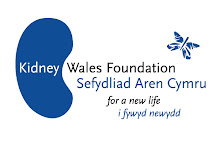World Kidney Day - Are your kidneys OK?
The purpose of World Kidney Day is to raise awareness about the importance of our kidneys – an amazing organ that plays a crucial role in keeping us alive and well – and to spread the message that kidney disease is common, harmful and treatable.
The main job of our kidneys (which are roughly the size of two fists and are located deep in our abdomen, beneath our rib cage) is to remove toxins and excess water from our blood. Every day our kidneys filter and clean 200 liters of blood – a quantity that would fill about 200 bottles or 20 buckets! Besides this impressive, daily feat, kidneys also help to control our blood pressure, to produce red blood cells and to keep our bones healthy.
If our kidneys gradually lose their ability to function, we speak of chronic kidney disease (CKD). It is a “silent” disease and often goes unnoticed because it may not be “felt”. Yet it affects many more people than we would ever imagine: studies of different races living on different continents worldwide have consistently shown that about 1 out of 10 adults has some form of kidney damage.
People with chronic kidney disease are 10 times more likely than healthy individuals to die of heart attacks and strokes. The health of their kidneys may also progressively worsen to the point where the kidneys must be replaced (this is called "end-stage renal disease"). Either patients receive a new, transplanted kidney or they are kept alive with “dialysis” – usually by a machine which cleans their blood about three times a week.
Fortunately, we can detect chronic kidney disease early on, and detection is easy. Simple, routine tests of our urine, blood and blood pressure can show early signs of kidney problems. And the good news is that once we know these problems, we can slow down and even stop chronic kidney disease, by taking medicines and changing some of our living habits.
Early detection and treatment of CKD can not only slow or halt the progression of patients to end-state renal disease, but it can also significantly reduce the incidence of cardiovascular diseases, which are today by far the most common cause of premature deaths worldwide.
Saturday, February 9, 2008
Subscribe to:
Post Comments (Atom)









No comments:
Post a Comment